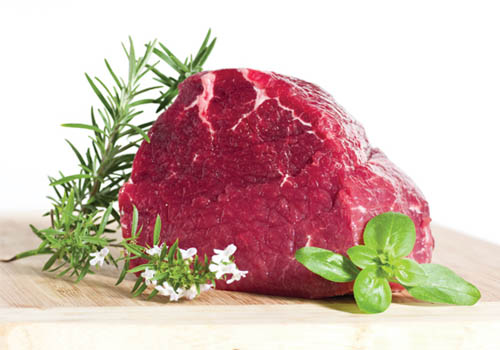Prior to working in the Middle East, I was the executive chef of The Savoy in London.
"As the city receives many visitors from the Middle East, the hotel catered to the dietary needs of these guests and was equipped and stocked to cater for Halal meals," explains Holger Jackisch, executive chef, Sharq Village & Spa, operated by The Ritz-Carlton Hotel Company.
"During my tenure there, I worked closely with our resident Muslim chef to understand the requirements of Halal food procurement and preparation.
"The only adaptation that I had to make in my cooking style was to avoid ingredients that were not Halal. The cooking methods and processes remain the same," he adds.
"Having been in the Middle East since 1975, I have been exposed to Halal-compliant foods and methods for a good number of years," says Peter Drescher, director of culinary - Middle East, Mövenpick Hotels and Resorts.

Advertisement
"The knowledge I have gained during this time has been invaluable and it is something that I pass on to new chefs coming into the region."
According to both Drescher and Jackisch, sourcing Halal produce does not represent any real challenges for chefs in the region, although for some luxury food items the Halal certification can be a bit blurred.
"In the mid 1970s there were fewer international hotels in the region and thus fewer suppliers around, but in general the sourcing of Halal products has never been a real issue.
"All hotels and restaurants in the region purchase meat that has been slaughtered according to traditional guidelines and our culinary and service teams are aware that the consumption of pork can never be Halal.
"Whenever we do use pork, our chefs ensure that it is stored and prepared away from all other products and pork products that are on the buffets or menus have to be clearly identified.
"Chefs are also mindful that food items are not mixed with alcohol at any time during preparation," says Drescher.
"Being based in the Middle East now, sourcing for Halal products has not posed an issue as there is an established network of suppliers and, given sufficient ordering lead time, almost anything I require is available," agrees Jackisch.
"Luxury or more unusual meat items need to be Halal certified. However, items like truffles are Halal," he clarifies.
Flying high
Even airline chefs are taking to producing Halal cuisine.
Carriers such as Emirates have always provided a completely Halal menu, but now other airlines, such as Thai Airways, are embracing Halal requirements.
Responding to growing demand from thousands of Muslim travellers, Thai Airways International signed a memorandum of understanding (MoU) in February with the Islamic Committee of Samut Prakarn Province to receive permission to use the Halal logo by the Central Islamic Committee of Thailand.
This means that Thai Airways International's Halal kitchen is now fully certified to ensure conformity with the permissible dietary requirements under Islamic law.
Thai Airways flies daily to several cities in countries with large Islamic populations, such as the UAE, Pakistan, Malaysia, Indonesia, Oman, Bangladesh, Brunei, Darussalam and numerous destinations in India.
In addition to the demand from Muslim passengers, the airline also provides meals for 10 customer airlines, which are national carriers of Islamic-majority countries.
The airline estimates total demand is for an estimated 5000 Halal meals per day, with more growth projected in the future.
As the Middle East's population continues to swell, and with more travellers visiting the region, the Halal market looks set to continue to enjoy exponential growth.
Organised by Orange Fairs & Events, the second Halal Expo 2008 will take place from November 24-26 at the Crowne Plaza Hotel in Dubai.
The exhibition aims to provide a high-impact platform to aid global players who are looking to leverage the high demand for Halal food products in the region.
Expected to attract more than 8000 visitors, the show will present Halal products within the catering, hospitality, food and beverage, health and pharmaceuticals industries.
In addition, a roundtable dialogue among leading industry players will also take place on the second day of the event.
The organiser is expecting to welcome more than 80 international exhibitors from Australia, Argentina, Brazil, Brunei, Bosnia, Canada, China, Egypt, France, India, Indonesia, Iran, Jordan, the Netherlands, Pakistan, the Philippines, Turkey, Thailand, Malaysia, Singapore, Saudi Arabia, the UK and the UAE.
In addition, representatives from government bodies, including several regional and international Halal Certification Authorities, Chambers of Commerce, and the International Halal Associations, have also confirmed their presence.
For more information visit www.worldhalalexpos.com









 Search our database of more than 2,700 industry companies
Search our database of more than 2,700 industry companies









